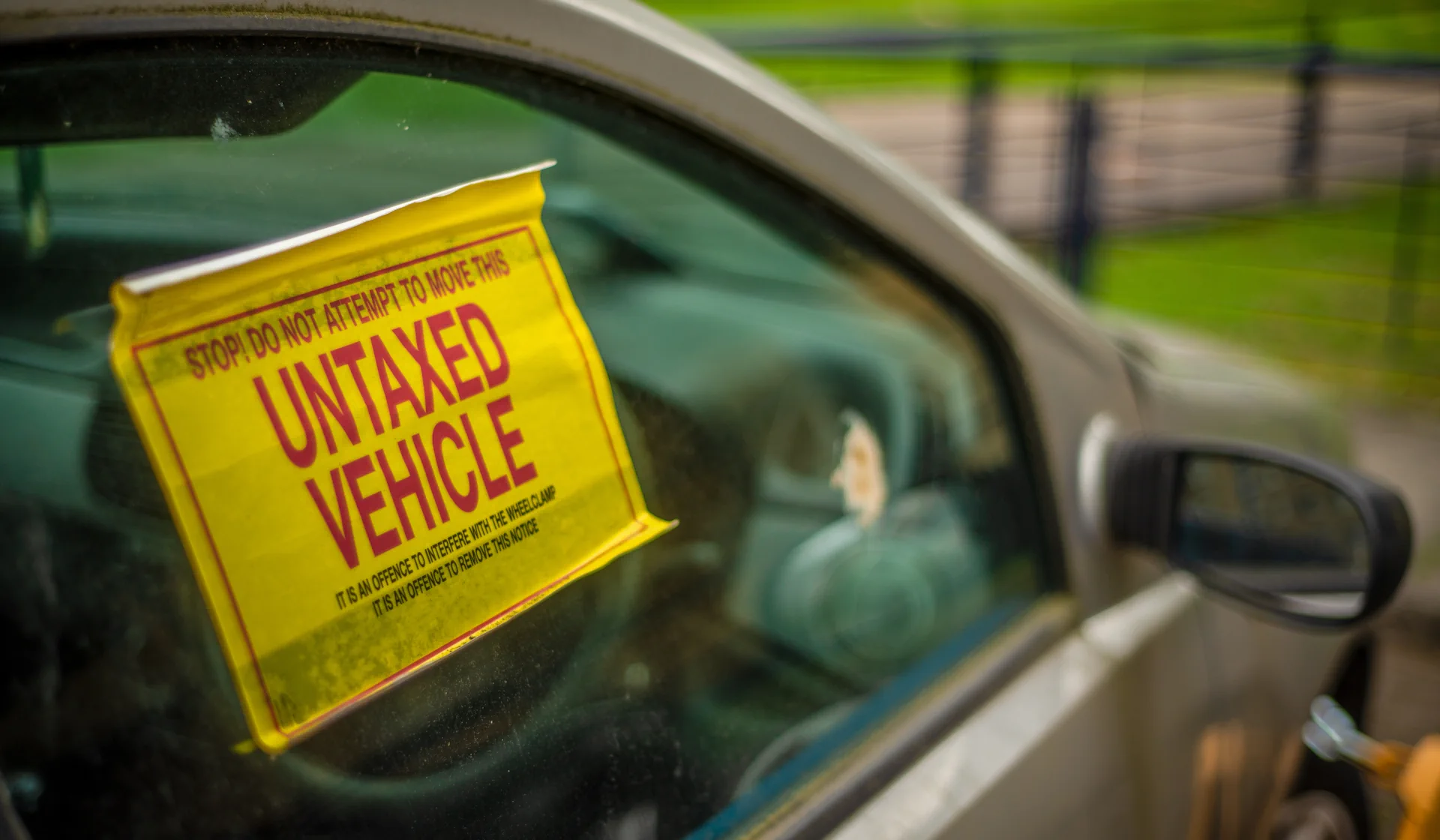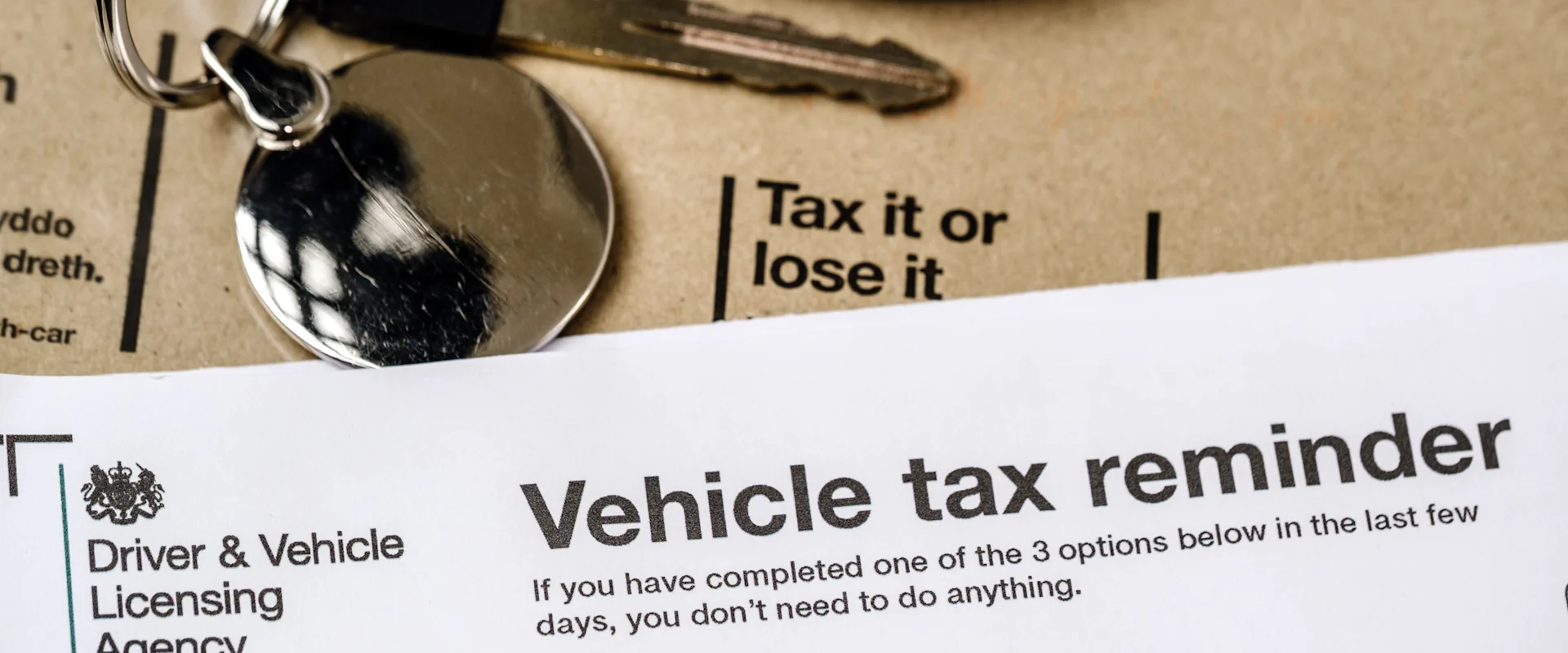A Guide to Taxing & Insuring Your Vehicle
Published on: Saturday, 22 November 2025 | Author: Jessica Bird
When you pass your test and first start driving, getting behind the wheel feels like freedom, until you realise how much car admin comes with it. Between insurance, tax, and MOTs, keeping everything organised can feel overwhelming.
But staying on top of your car admin isn’t just about good organisation, it’s about staying safe, legal, and ready for the road. So, whether you’re a new driver or just looking to get more organised, this guide explains the essentials of taxing and insuring your vehicle, as well as the other documents every driver should know about.
Why is car admin so important?
“Car admin” basically covers all the essential paperwork that keeps your vehicle legal, roadworthy, and insured. It might not be the most exciting part of motoring, but it’s one of the most important.
Staying on top of it helps you:
- Avoid fines or penalties.
- Keep your insurance valid.
- Protect your vehicle’s value.
- Prove ownership and compliance.
Missing or outdated documents can lead to serious consequences, including driving offences or an impounded vehicle, so it’s worth taking the time to get all of your paperwork in order.
The essential car documents you should always have
Every driver in the UK needs to keep certain car documents safe, current, and easy to access. These form the backbone of your car admin, helping prove ownership, legality, and maintenance history.
Here's a quick overview of the documents you'll need to stay road-legal and well-organised
- Car Tax: Confirms your vehicle is registered and legally allowed on public roads.
- Insurance Certificate: Proves your car is covered and you’re legally insured to drive.
- MOT Certificate: Demonstrates your vehicle meets UK road safety and environmental standards.
- V5C Logbook (Vehicle Registration Certificate): Shows who the registered keeper of the vehicle is, and is essential when selling or transferring ownership.
- Service History: Records maintenance and repairs, supporting your car’s reliability and resale value.
Each of these plays a key role in keeping you compliant and confident behind the wheel. Let’s take a closer look at what they mean, why they matter, and how to manage them properly.
Taxing your vehicle
Every car driven or parked on UK roads must be taxed. Vehicle tax (also known as Vehicle Excise Duty, or VED) helps maintain the road network, and varies depending on your car’s emissions and fuel type.
How to Tax Your Car
You can pay your car tax online using one of the following:
- The 11-digit reference number on your V5C logbook (registration certificate)
- The 16-digit reference from your vehicle tax reminder letter (V11)
- A valid MOT certificate (your car must have one to be taxed)
Tip: Make sure your car insurance and MOT are both valid before attempting to tax your car.
What happens if you don't pay vehicle tax
Driving or keeping an untaxed vehicle on a public road can result in:
- A £1,000 fine or more.
- Your car could be clamped or impounded.
- Backdated tax payments being demanded from you.
If you’re taking your car off the road (for example, if it’s stored in a garage), you’ll need to declare it as SORN (Statutory Off Road Notification) with the DVLA.

Insuring your vehicle
Insurance is a legal requirement for every driver in the UK. It protects you and other road users in the event of an accident, theft, or damage.
Types of Car Insurance
There are three main levels of cover:
| Types of insurance | What it covers |
|---|---|
| Third-Party Only | The minimum legal requirement. Covers damage or injury to others, but not your own vehicle. |
| Third-Party, Fire & Theft | Adds protection if your car is stolen or damaged by fire. |
| Fully Comprehensive | Covers your vehicle and others involved in an accident, regardless of fault. |
When choosing insurance, make sure the policy suits your driving habits, vehicle value, and budget.
Your insurance certificate
Once you’ve arranged your policy, you’ll receive an insurance certificate. This document confirms:
- Your insurer and policy number
- Your vehicle registration
- The level and duration of cover
You must be able to produce proof of insurance if stopped by the police, or when taxing your car online.
Tip: Keep a digital copy handy and store a printed version somewhere safe.
MOT certificate
The MOT confirms that your vehicle meets UK safety and environmental standards. It’s:
- Required every 12 months for cars over three years old
- Essential for renewing vehicle tax
- Valid for 12 months from the test date
You can check your MOT history and expiry date online via GOV.UK.
Regular MOTs aren’t just about legal compliance; they help identify issues early, keeping your car safe and running smoothly.
VS5 logbook (Vehicle Registration Certificate)
Often called the logbook, the V5C is one of the most important car documents you’ll own. It proves who the registered keeper of the vehicle is; not necessarily the legal owner, but the person responsible for it.
You’ll need your V5C to:
- Register the car in your name.
- Change address or personal details.
- Sell or transfer ownership.
If you’re wondering what documents you need to sell your car, the V5C tops the list. Without it, you can’t legally transfer ownership. If you’ve misplaced it, you can request a replacement log book for a small fee.
Service history
Keeping a detailed record of your service history shows that your car has been properly maintained, improving both reliability and resale value.
Whether digital or paper, service records should include:
- Date and mileage of each service
- Details of parts replaced
- Garage or technician name
Keeping these up to date demonstrates you’ve looked after your vehicle - a major plus for potential buyers.
Other important documents
While car tax, insurance, and MOT certificates are the core of your car admin, there are a few other documents that are worth knowing about, especially if you don’t drive every day or want extra peace of mind on the road.
Stationary Off Road Notification (SORN)
If you’re not using your car and keeping it off public roads - for example, if it’s in storage, being repaired, or declared off-road over winter - you’ll need to make a Statutory Off Road Notification (SORN).
This officially tells the DVLA that your car isn’t being driven or parked on public roads, meaning you won’t have to pay vehicle tax or insurance during that period.
It’s simple to do online via GOV.UK, and once declared, your car must stay off public roads until the SORN is cancelled.
Breakdown cover (not a legal requirement)
Breakdown cover can save you time, stress, and unexpected costs if your car breaks down while you’re out driving.
Depending on your policy, it can include roadside assistance, recovery to a local garage, and even onward travel if repairs take longer than expected. It’s an optional extra, but for many drivers, it’s a small investment that offers major reassurance.
Top tips for managing your car admin
Staying on top of car paperwork doesn’t have to be a hassle. Here are some simple ways to make it stress-free:
- Set reminders for MOT, insurance, and tax renewal dates.
- Store digital copies of important documents in the cloud.
- Keep physical paperwork together in a labelled folder.
- Check your MOT and tax status regularly via GOV.UK.
- Keep receipts for tyres, services, and repairs to support resale value.
A little organisation goes a long way when it comes to staying road-legal and confident.
Stay informed, stay road legal
Car admin might not be the most exciting part of driving, but it’s the foundation of safe, legal, and stress-free motoring. From renewing your insurance to keeping your MOT and tax up to date, staying organised means one less thing to worry about.
At Tyre Pros, we’re here to help you look after your car inside and out, from everyday driving advice to expert tyre care and servicing. Book your MOT, service, or free tyre check today, and drive with confidence knowing you’ve got the essentials covered.




